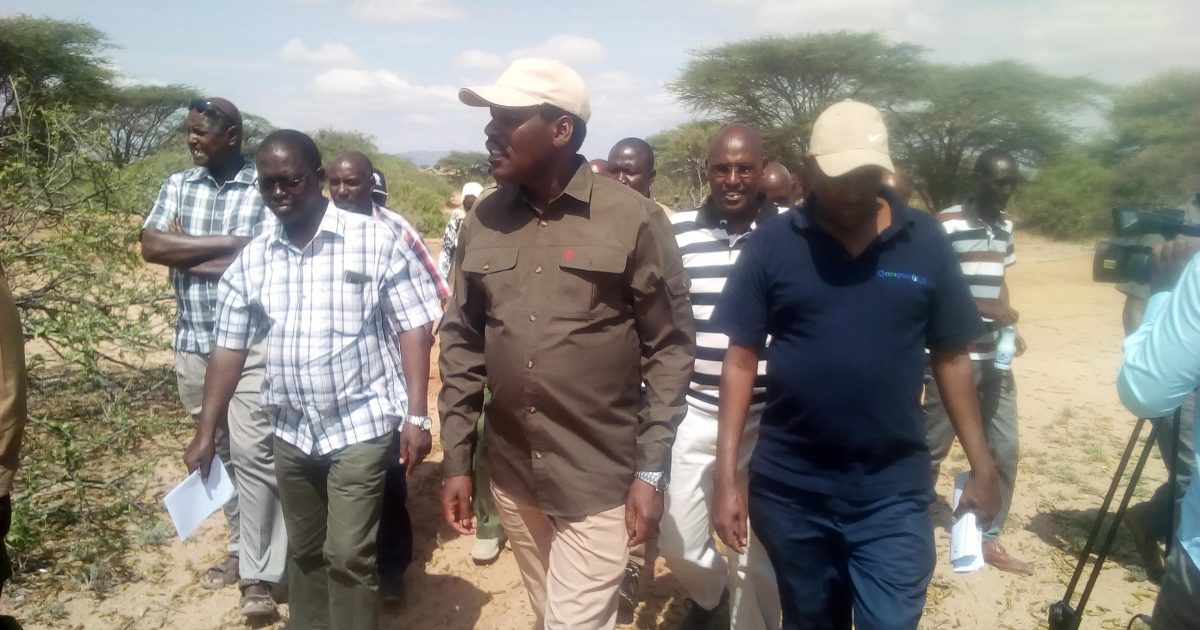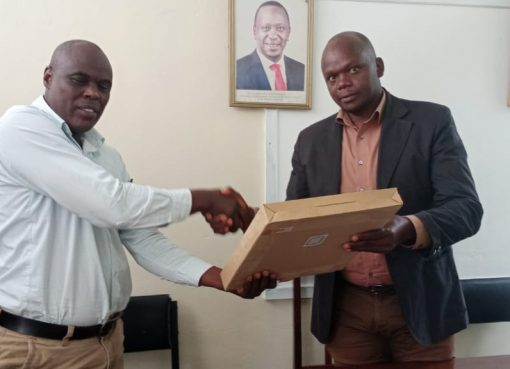The government has released 1400 litres of appropriate pesticides to Marsabit County as the war against desert locusts invasion intensified across the country, Agriculture Cabinet Secretary (CS), Peter Munya has said.
Speaking in Laisamis location on Monday, when he visited the area to assess the progress in the control of the pests, Munya said the government was contented with the existing control measures that have seen swarms of desert locusts eradicated.
The CS hailed cooperation and team work being exhibited by teams from both national and county governments while carrying out ground and aerial spraying of the pests, adding that no effort will be spared in the campaign against the menace.
He added that a team of trained National Youth Service (NYS) personnel will be dispatched to the county once the established hatchlings are active.
The personnel who will be armed with spray and motorized pumps will be deployed to areas like Laisamis, Moite, Loiyangalani, Sarima, Walda and Butie, where rapid assessments carried out indicated that locusts had thousands of eggs in the sand.
Munya said the government was not taking any chances adding that planes and vehicles have been put on stand by for any eventuality.
“The swarms have been eradicated and we are now focusing on manual spraying on hatchlings starting with Garissa, Isiolo and Samburu counties where NYS personnel have been deployed” said the CS.
He said control teams were on high alert with adequate measure in place in case the dreaded swarms reemerged from Ethiopia and Somalia or those which might escape to neighbouring counties.
Meanwhile, the CS has also announced of an impending vaccination drive against Foot and Mouth Disease in all parts of the country.
He said the national government will undertake the exercise upon realization that the capacity of county government was not equal to the enormous task.
The CS who was accompanied by the Administrative Secretary in the ministry, Kello Harsama, the Head of Crop Protection Unit, David Mwangi and FAO representative to Kenya, Hamisi Williams also said the national government would establish a veterinary laboratory at the Laisamis Technical Training Institute.
The move was geared towards effective monitoring and animal disease control for improved breeds and products.
He pointed out that majority of Marsabit residents were pastoralists whose source of livelihood is livestock, hence the importance of continuous and easily accessible veterinary services.
Regarding experts involved in the desert locusts control initiatives, the CS said Kenya had enough qualified personnel who have so far adequately tackled the menace with minimal costs.
Munya said there was no point of declaring the locust invasion problem a national disaster, as large swarms of the pests had already been eliminated, with the focus now shifting to destroying the laid eggs once they hatch.
Also present was the County Chief Officer for Agriculture, Jardesa Dima.
By Sebastian Miriti





